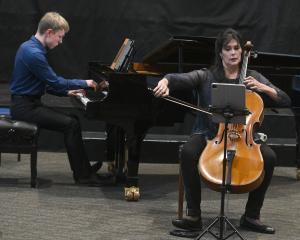
Research from 1999-2001 showed more than half of those who were in secondary school 20 years ago, were regularly drinking and going to parties by the time they were in year 10.
And by year 12, all had at least some experience of using alcohol with their peers, the majority had been drunk at least once or twice, and many drank to intoxication weekly.
But new University of Otago (Wellington) research shows only one of 64 year 10 pupils interviewed last year, reported drinking alcohol socially.
Public health researcher Dr Jude Ball said most had never had more than a few sips of alcohol.
"Even among the students in years 11 and 12, about three-quarters were abstinent or drank moderately on rare occasions, often with family, rather than with friends."
She said the reasons behind the "striking" change in attitudes were complex, but it appeared social media and spending time online was replacing the drinking and partying of teens 20 years ago.
"Parties used to enable young people to expand their social circle, meet potential romantic partners, or take an existing friendship to a romantic or sexual level.
"Now adolescents can expand their social circle, meet potential romantic partners and try on a more flirtatious and confident persona — all without leaving the house."
Dr Ball said 20 years ago, year 10 pupils described a social hierarchy, with early adopters of alcohol at the top, and non-drinking ‘nerds’ at the bottom.
"By year 12, drinking was seen as an almost compulsory aspect of teen socialising, particularly for males.
"In contrast, non-drinking was the norm for many contemporary adolescents.
"Although alcohol was part of social life for some friend groups, many teens described active social lives that did not involve the use of alcohol or other substances."
She said a greater acceptance of diversity and more respect for individuals making their own personal choices, had removed peer pressure to drink alcohol among contemporary teens.
Some contemporaries regarded drinking or a party lifestyle as a risk to their personal ambitions and an unproductive use of time and money.
There was also a much stronger awareness of alcohol-related health risks, including cancer, liver damage, the impact of substance use on brain development, and concerns about becoming addicted.
Dr Ball said it was not yet clear whether the changes in attitude reflected a unique generation who would remain ‘dry’ throughout their lives, or just one which was delaying alcohol use and would ‘catch up’ with previous generations when they reached early adulthood.
"New Zealand evidence suggests binge drinking remains highly prevalent in early adulthood, and despite declining alcohol use in high school students, binge drinking in older adolescents remains much higher here than in other countries like Australia and the United States."
Advertisement













